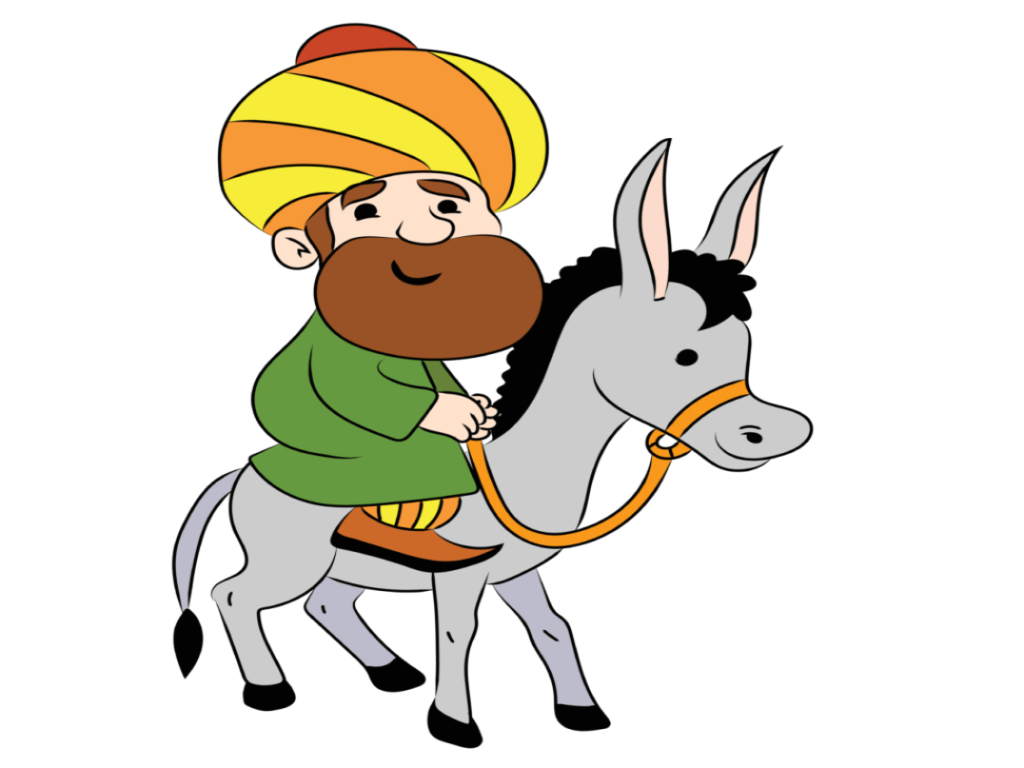Have you ever heard the name Juha? He is a legendary folk character, and his Juha stories bring laughter and wisdom to people for centuries. Found in Arab popular humor across the Middle East, Juha Arabic is a key part of Arabic culture. Understanding Juha meaning is a great way to understand the Arab world’s unique blend of wit, wisdom, and humor. People also know Juha by other names in different cultures, such as Mullah Nasruddin in Turkey and Nasreddin in other parts of Central Asia.
Juha Arabic: The Meaning of a Character
The juha meaning is more than just a name; it represents a character who is both a simple fool and a wise sage. Juha often appears as a naive or silly peasant, but his actions usually contain a deeper, clever meaning. He uses humor and seemingly illogical arguments to get out of trouble or to make a subtle point. His stories, which number in the hundreds, people have passed down through oral tradition. They can change slightly from one place to another. They often serve as a clever form of social commentary, criticizing powerful people or human greed in a humorous and light-hearted way.
Funny and Wise Juha Stories
The juha stories are short, memorable, and often teach a lesson. Here are a few examples that show his unique way of thinking:
Juha and the King’s Feast
One day, a king hosts a grand feast and invites all the important people, including Juha. Juha arrives in his simple, old clothes. The guards at the gate ignore him, and the other guests do not give him a place at the table. Feeling sad, Juha quietly leaves the palace, goes home, and puts on his most expensive, beautiful robes. When he returns to the palace, everyone treats him with great respect. The guards immediately welcome him, and the guests rush to offer him a place at the feast. Juha sits down and takes a large piece of meat. Instead of eating it, he puts it in his pocket and says, “Eat, my clothes, eat!” The surprised guests ask him what he is doing. Juha replies with a straight face, “You only gave me respect when I was wearing these clothes, so they deserve the food!” This story teaches a lesson about not judging a person by their appearance.
The Lost Donkey
When Juha loses his donkey, his friends see him laughing and ask him why he is so happy about a bad situation. He replies, “I am happy because I am glad it was the donkey who got lost, and not me!” This story shows his quirky and clever perspective on problems. He turns a moment of loss into a moment of gratitude and relief.
Juha and the Donkey’s Box
ne day, Juha is riding his donkey and carrying a very heavy box on his shoulders. A friend sees him and is very confused. He stops Juha and asks, “Juha, why are you carrying that heavy box? Why don’t you put it on the donkey?” Juha replies with a sincere expression, “My dear friend, my donkey is already carrying me; I am helping it by carrying the box myself!” This story is a funny example of his strange but charming way of thinking, which often contains a simple but unexpected logic.
Juha and the Pot
Juha borrows a large cooking pot from his neighbor. A few days later, he returns it and also gives the neighbor a small pot. The neighbor is confused and asks, “What is this for?” Juha says, “The pot gave birth to a baby pot while it was in my house!” The neighbor, surprised and happy with the new pot, takes both pots. A few weeks later, Juha borrows the large pot again, but this time he does not return it for a long time. When the neighbor asks for it, Juha tells him with a sad face, “I am very sad to say, your pot has died.” The neighbor becomes very angry and says, “What are you talking about? A pot cannot die!” Juha calmly replies, “If you believe it can have a baby, then you must believe it can die.” This story teaches a lesson about greed and believing things that are too good to be true.
Juha and the Thieves
Juha’s house is next to a garden. He sees a thief trying to steal a melon. Juha quietly watches him. The thief looks at Juha, expecting him to do something. Juha whispers to the thief, “Wait! Don’t take that one; it’s not ripe yet. Here, take this one instead.” The thief is confused and takes the melon Juha gives him. The next day, the owner of the garden asks Juha why he gave the thief a melon. Juha replies, “The first melon was small and unripe. The one I gave him was big and ripe. Now, the thief will come back to my house, thinking I have all the best melons!” This story shows Juha’s cleverness in using a situation to his advantage.
Conclusion: Juha’s Legacy
Juha is a timeless character whose stories people continue to tell today. By learning about juha arabic and the juha stories, you get a glimpse into a rich folk tradition. His character, with his unique blend of naivety and wisdom, reminds us that laughter and a different perspective can often solve life’s problems.
To continue your journey into the richness of the Arabic language and its cultures, consider using the Kaleela app. It provides comprehensive lessons on Modern Standard Arabic and various dialects, helping you master not just the words but also the traditions behind them.



